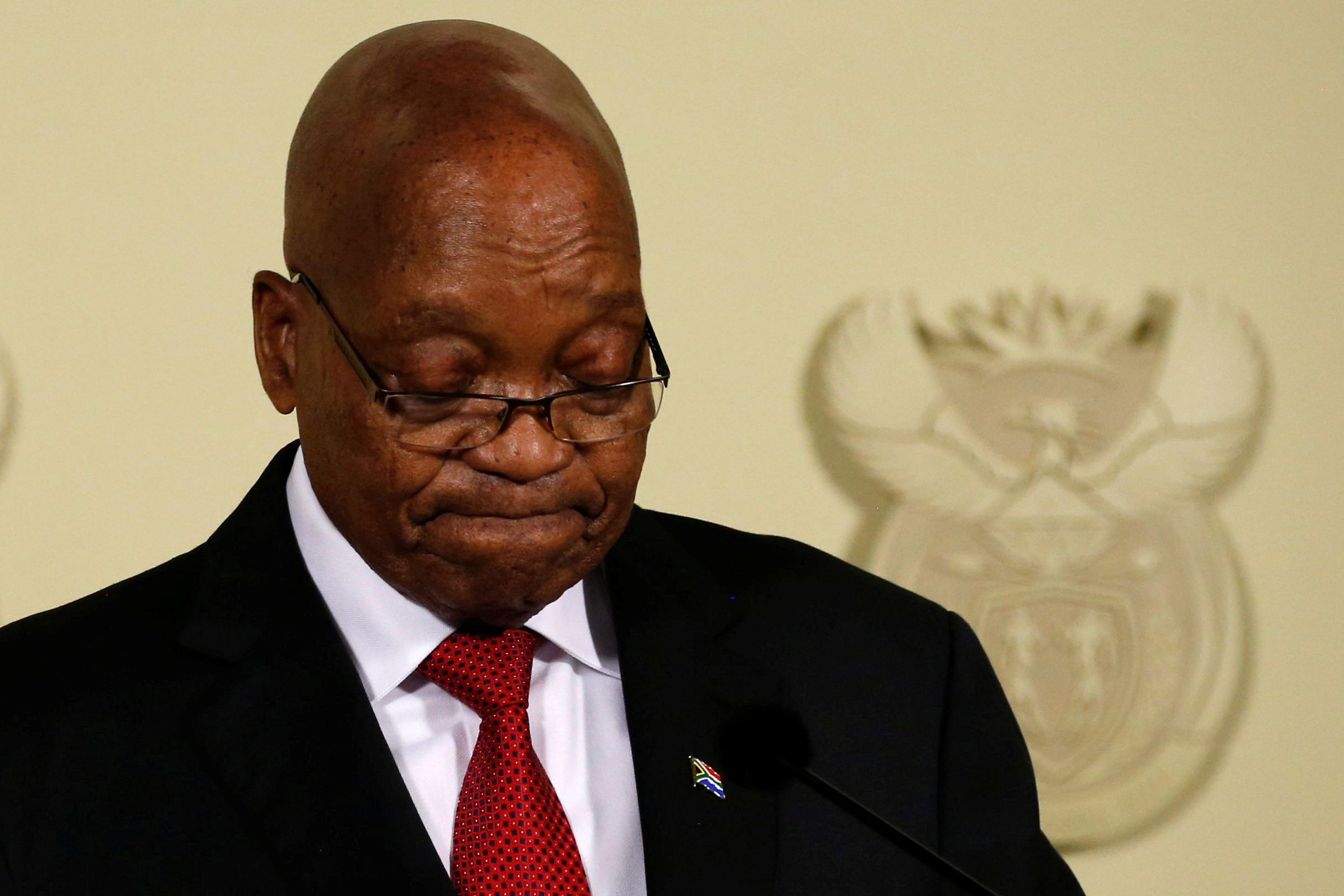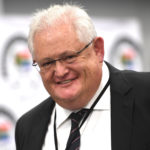Zuma: Nine years of tainting and tweaking
Zondo commission evidence supports Jacob Zuma’s claims that his nine years as president were not wasted, but not in a good way.
Author:
1 February 2019

Evidence from the state capture commission of inquiry chaired by Deputy Chief Justice Raymond Zondo has affirmed former president Jacob Zuma’s Twitter comments this week that his tenure — interrupted by his party forcing him to resign in February 2017 — was, indeed, not a wasted nine years.
Zuma’s myopic missive celebrates “achievements”, such as the country’s extensive grant system, while conveniently ignoring how the South African Social Security Agency’s disbursement protocols were “captured” during the ruinous period when his lackey, Bathabile Dlamini, was minister of social development. Or the court rulings – and fine margins – that averted the catastrophe of 17 million poor South Africans not being paid grants because of Dlamini’s intransigence and inefficiency.
Zuma, apparently more corrupted-in-chief than commander-in-chief, would have been better served switching on the telly and taking a few notes from the commission’s proceedings to bulk up his arguments that “there is no such thing as nine wasted years behind us”. This in apparent response to President Cyril Ramaphosa’s comments at this year’s World Economic Forum in Davos, Switzerland, that South Africa is emerging from “nine lost years”.
Related article:
For, as Bosasa executives have testified, Zuma appeared to have worked his fingers to the bone while commander-in-chief, counting out the alleged R300 000 a month he was receiving from the facilities management company, ordering last-minute bespoke birthday cakes through proxies and allegedly impeding investigations into the company.
Msholozi worked hard when he was president. At setting up a shadow state of spooks and spies. At undermining the independence of institutions such as the National Prosecuting Authority (NPA), the police, the Hawks and the Special Investigations Unit. Bodies that should have investigated Zuma – and his political and business cronies – without fear or favour.
All this with the apparent intention of ensuring he stayed out of the courts, and prison, for the charges of racketeering, fraud and corruption that have hung over him – and South Africa’s democracy – like a fetid hot-air balloon since the mid-2000s.
‘Spy tapes’
Prior to the 2009 national polls that would see Zuma elected as president, then acting national director of public prosecutions Mokotedi Mpshe dropped these charges against Msholozi. It was a decision based on the “Zuma spy tapes” that were clandestinely delivered to Zuma’s former lawyer, Michael Hulley.
The tapes suggested that former NPA boss Bulelani Ngcuka and Scorpions head Leonard McCarthy had plotted the timing of indicting Zuma so as to undermine his campaign to be president of the ANC in 2007. Its origins have never been made clear.
What was obvious to anyone casting an eye through Zuma’s looking glass was that he had a network of the corrupted in various parts of the civil service, who would make information available, monitor enemies and influence the investigation and prosecution of cases.
Related article:
The network would have included people such as former crime intelligence boss Richard Mdluli, who wrote to Zuma prior to the ANC’s 2012 national conference in Mangaung to state his readiness to “assist” the president “to succeed”. NPA heads like former acting head Nomgcobo Jiba (whom Bosasa nicknamed “the Snake”) and Specialised Commercial Crime Unit boss Lawrence Mrwebi (nicknamed “the Snail”) were also allegedly part of this network.
Businessmen like Bosasa’s chief executive officer, Gavin Watson, would have been wearing Cheshire Cat grins to rival Zuma’s. Which would explain why, according to testimony by former Bosasa chief operations officer Angelo Agrizzi, Watson went to visit Zuma at Nkandla after one of the president’s birthday parties to court his favour in shutting down a Hawks investigation into Bosasa.
Agrizzi told the commission that Watson bragged about the meeting and confirmed to him that R300 000 was handed to Zuma during the visit. Zuma apparently told Watson he would “make a call or two” in respect of the investigation.
“[Watson] believed he was totally bulletproof with Mr Zuma on his side,” Agrizzi told the commission.
‘Bag lady’
Agrizzi then detailed meeting Zuma’s apparent “bag lady”, former South African Airways board chair Dudu Myeni, at the Pretoria Sheraton Hotel with Watson.
Myeni had, in her clutches, a confidential police docket that contained monthly updates to the Bosasa investigation.
In another instance, Agrizzi told of a meeting between himself, Watson and former correctional services commissioner Linda Mti at the latter’s house, when a call was made to Zuma. Mti was one of the main cogs in the corruption machinery that ensured Bosasa received billions of rands worth of tenders from the prisons department.
During the meeting, according to Agrizzi, Watson phoned Zuma to find out how stifling the investigation into Bosasa was progressing and handed the phone over to Mti with the words: “Here, your boss wants to speak with you.”
According to Agrizzi, Mti spoke to Zuma before saying, “I’m ready to be deployed,” and handing the phone back to Watson.
Brokering corruption
In another instance, Agrizzi spoke of Bosasa’s increasing interest in exploring for natural gas in the Karoo. To ensure the company’s success, Myeni was apparently used to lobby Zuma to instruct then minister of mineral resources and energy Mosebenzi Zwane to change “legislation and regulations” to allow the initiative to proceed unhindered.
It is this kind of hard work for which Zuma’s presidency will be best remembered: the tainting and tweaking of South Africa’s democratic institutions and processes, which were intended to keep power – corporate and political – in check. Some of these may be irreversible.
Zuma certainly did not waste the nine years he was president of South Africa.


